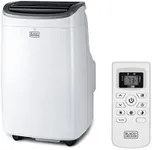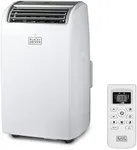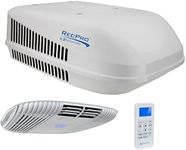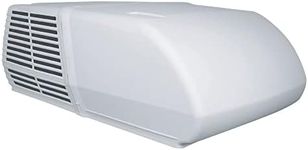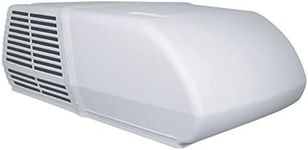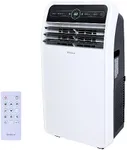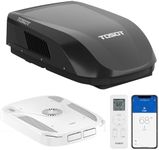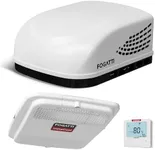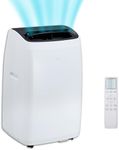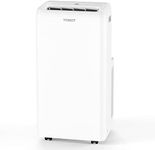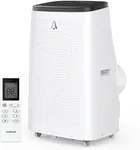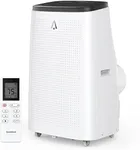Buying Guide for the Best Portable Ac Unit For Rv
Choosing the right portable air conditioning unit for your RV is crucial for ensuring comfort during your travels. The right unit will keep you cool in the summer and can even help with humidity control. When selecting a portable AC unit, consider the size of your RV, the climate you will be traveling in, and your power supply. Here are some key specifications to consider and how to navigate them to find the best fit for your needs.BTU RatingBTU stands for British Thermal Units and measures the cooling capacity of the air conditioner. This spec is important because it determines how effectively the unit can cool your RV. For small RVs, a unit with 5,000 to 8,000 BTUs may be sufficient. Medium-sized RVs might require 8,000 to 12,000 BTUs, while larger RVs could need 12,000 to 15,000 BTUs or more. To pick the right one, consider the size of your RV and the typical climate conditions you will encounter. A higher BTU rating means more cooling power but also higher energy consumption.
Energy Efficiency Ratio (EER)The Energy Efficiency Ratio (EER) measures the efficiency of the air conditioner. It is calculated by dividing the BTU rating by the unit's power consumption in watts. A higher EER indicates a more efficient unit, which is important for conserving energy and reducing your power costs. EER values typically range from 8 to 12. For RV use, an EER of 10 or higher is generally recommended to ensure efficient operation, especially if you rely on limited power sources like batteries or generators.
Size and PortabilityThe physical size and portability of the unit are crucial for RV use. This spec is important because space is limited in an RV, and you need a unit that fits comfortably without obstructing movement. Portable AC units come in various sizes, so measure the available space in your RV before purchasing. Look for units with wheels or handles for easy movement and storage. If you frequently move your RV, a more compact and lightweight unit will be easier to handle.
Noise LevelThe noise level of the air conditioner, measured in decibels (dB), is important for maintaining a comfortable and quiet environment in your RV. Lower noise levels are preferable, especially if you plan to use the unit while sleeping or during quiet activities. Noise levels for portable AC units typically range from 50 to 70 dB. For a peaceful experience, look for units with noise levels below 60 dB. Consider your sensitivity to noise and the layout of your RV when choosing the right noise level.
Power Source CompatibilityPower source compatibility is crucial for ensuring that your portable AC unit can operate effectively in your RV. This spec is important because RVs often have limited power options, such as shore power, generators, or batteries. Check the unit's power requirements and ensure they match your RV's power supply. Some units may require a standard 120V outlet, while others might be compatible with 12V systems. Consider your typical power setup and choose a unit that can operate efficiently within those constraints.
Additional FeaturesAdditional features such as remote control, programmable timers, dehumidifiers, and multiple fan speeds can enhance the convenience and functionality of your portable AC unit. These features are important for customizing your comfort and making the unit easier to use. For example, a remote control allows you to adjust settings without getting up, and a programmable timer can help you save energy by running the unit only when needed. Consider which features are most important to you and look for units that offer those options.
